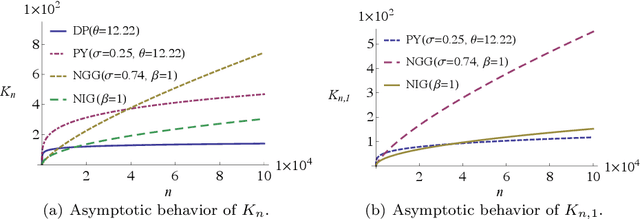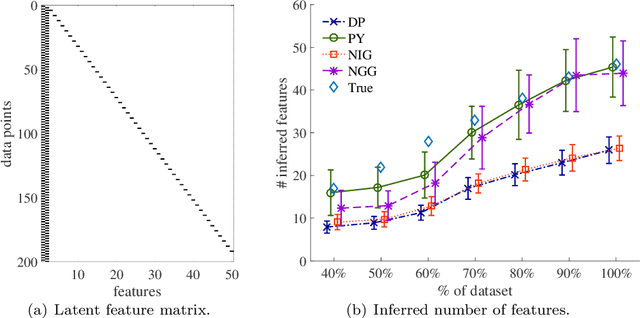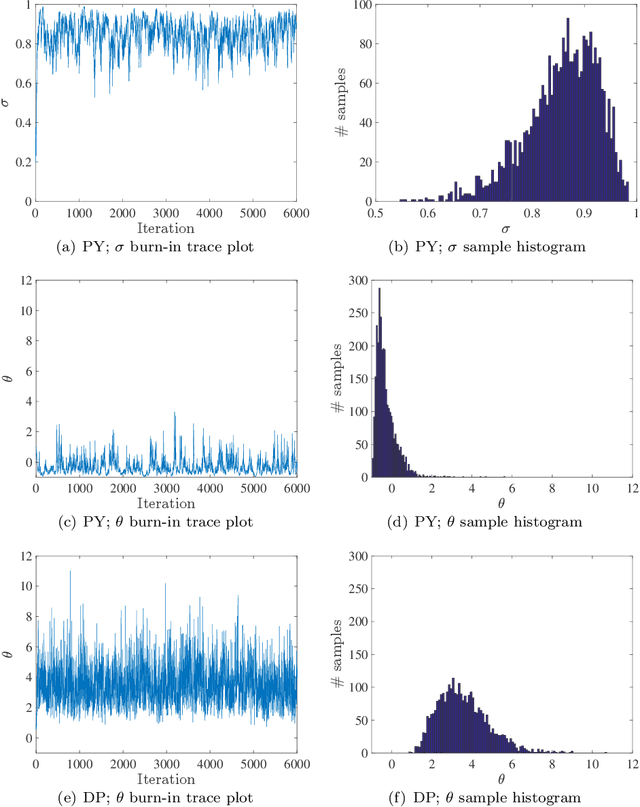Gibbs-type Indian buffet processes
Paper and Code
Dec 08, 2015



We investigate a class of feature allocation models that generalize the Indian buffet process and are parameterized by Gibbs-type random measures. Two existing classes are contained as special cases: the original two-parameter Indian buffet process, corresponding to the Dirichlet process, and the stable (or three-parameter) Indian buffet process, corresponding to the Pitman-Yor process. Asymptotic behavior of the Gibbs-type partitions, such as power laws holding for the number of latent clusters, translates into analogous characteristics for this class of Gibbs-type feature allocation models. Despite containing several different distinct subclasses, the properties of Gibbs-type partitions allow us to develop a black-box procedure for posterior inference within any subclass of models. Through numerical experiments, we compare and contrast a few of these subclasses and highlight the utility of varying power-law behaviors in the latent features.
 Add to Chrome
Add to Chrome Add to Firefox
Add to Firefox Add to Edge
Add to Edge